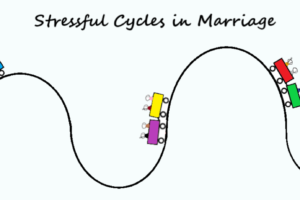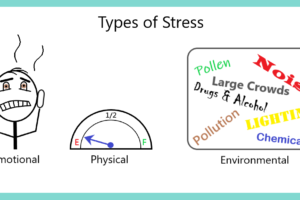Comments from Kathryn, the author of this blog and a licensed clinical social worker. The following is a brief excerpt from my book: Relationships Relearned: A Guide to Achieving Healthy and Successful Relationships. As a licensed clinical social worker (LCSW), I wrote this book because I saw many clients struggle to identify red flags in their intimate relationships.
Recognizing an Unhealthy Relationship
Being in a relationship is not always easy. There will always be a time when one person seems to be flourishing and the other is floundering. There may be a time you can’t get enough together time, and times when you need space away from each other. You and your significant other may not always be perfectly in sync with each other. All relationships go through these phases. It is important to remember that these phases are temporary. With mutual trust, respect, communication and commitment, relationships can survive the difficult times.
Overall, intimate relationships are intended to be enjoyable and fulfilling. You should feel supported and accepted. Healthy relationships provide a safe haven from the world. A healthy relationship encourages you to feel secure, happy, content, cared for, respected and most important, free to be yourself. This would be ideal.
Some couples, after an initial bright honeymoon phase, struggle to find a stable place of trust, respect, communication and commitment. The struggle can be the result of a relationship trauma such as:
- addiction
- domestic abuse
- infidelity
Or the relationship struggle can be the result of:
- personal problems of one or both of the individuals
- apathy or ambivalence about being in a relationship
- deliberate emotional withdrawal from the relationship
As surprising as it sounds, many couples may not even know they are in an unhealthy relationship. If one or both individuals in the relationship grew up in a household where dysfunction was the norm, it would be hard to know what a healthy relationship even looks like! This makes it very important to be able to recognize problem areas, or “red flags”, in your relationship.
Ten Examples of Red Flags
The following are ten red flags (warning signs) that will help you identify there may be a problem in your primary relationship:
1.) Conflict
In some relationships conflict is constant and unrelenting. If your significant other can’t even floss his/her teeth without you feeling annoyed, then something is definitely not right! Constant anger and negativity can be signs of deep-rooted issues between you and your significant other. If you are unable to talk to your significant other about anything without having an argument, it is a red flag.
2.) Apathy
Apathy is the lack of feeling, passion, emotion or excitement. If even one person in the relationship is apathetic, then it is a problem in your primary relationship. Ironically, not fighting, or no conflict, can be a problem in a primary relationship. Not fighting suggests the thought process of, “It doesn’t matter anyway. I might as well put my energy elsewhere”.
3.) Lack of trust
If you are even thinking about going through your significant other’s cellphone or computer history with or without his/her knowledge or permission, this is a huge red flag!! Even thinking about it indicates you are demonstrating enough doubt about your significant other that the relationship is on very shaky ground. Distrust doesn’t happen overnight. It develops progressively throughout five stages:
- Anxiety
- Doubt
- Fear
- Self-protection
- Suspicion
4.) Avoidance
If you dread spending time with your significant other to the point where you would rather be around almost anyone else (family, friends, co-workers, neighbors, etc.), it is a red flag. There is nothing wrong with spending time alone or with family or friends! It is the part about not wanting to EVER spend time with your significant other that is the problem. This is probably a sign that you have already begun to let the relationship go.
5.) Conflicting goals
When one or both of you realize you want different nonnegotiable things in a relationship, it is a red flag. Maybe one of you wants kids and the other doesn’t, or one of you is religious and the other isn’t. Every relationship has a process of compromise, negotiation and assimilation of your significant other’s values into your life, but sometimes values are too distinct and different to ever be reconciled.
6.) Disrespect
Relationships without respect are doomed to fail. In fact, contempt is thought to be one of the top predictors of divorce. Mutual respect is the first requirement of a healthy primary relationship. In some relationships disrespect is demonstrated through criticism. Another sign of disrespect is when there is no consideration of boundaries. Without respect, significant others may push you to your limits which is a major red flag.
7.) Jealousy
Your significant other becomes extremely jealous when you spend time with friends or talk to others. Extreme jealousy or possessiveness can escalate into limiting your time with friends, family, and activities. Perhaps your significant other checks up on you constantly and wants to know what you are doing at all times. Demanding constant contact is not respectful of boundaries and is not a healthy behavior in a relationship!
8.) You feel worse about yourself, not better
Watch out for a relationship that does not encourage a better “you”, or when your significant other does not encourage you to be your most successful. Mature relationships are based on acceptance, not judgement of how someone thinks someone else should be. If instead of feeling happy and productive, you feel mentally, emotionally and even physically drained, it’s time to re-evaluate the relationship.
9.) Accepting responsibility
Some people will never admit it when they make a mistake. Be cautious of people who refuse to accept responsibility for themselves or their actions. Or a significant other who uses guilt or other pressure tactics to get you to do what they want you to do. This is not being respectful. If you find yourself changing your opinions to please someone else, you are probably in an unhealthy relationship.
10.) Inequality in a relationship
A sure sign of an unhealthy relationship is when someone has more power over you than you have over yourself. If one person is in control, or a constant tug-of-war is going on, you are probably spending too much energy navigating the relationship. All relationships go through challenges, but people in healthy relationships will work through these challenges with good communication, trust and respect.
Take Away Point
An important step to attaining and maintaining a healthy relationship is to know when it might be time to call in a therapist for professional help, or time to call the relationship quits! The book, Relationships Relearned: A Guide to Achieving Healthy and Successful Relationships can help you improve your intimate or primary relationship.
With warmest regards,
Thank you so much for reading this blog. If you enjoyed the content, please check out other blogs at:
RelationshipsRelearned.com
RVingNomads.com
In addition to blogs and articles, I have written a series of self-help books called The Personal Empowerment Series and a fictional series named The Charlotte Novella Series. To view the books and novellas I have written, please go to my Amazon Authors Page.
To be notified of future posts, please enter your email address and click on the Subscribe button.
If you live in the State of Maine or Texas and seeking individual therapy, please go to my Concierge Therapy website: KathrynMaietta.com
| AI has not been used to create any content for my website, articles, blogs or books. All material is original unless otherwise noted. All photos and graphics within my website and blogs were taken or created by David Harrington or Kathryn Maietta. |












